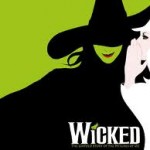At this time of the term lecturers tend to see many of their students individually, either because they are seeing their personal tutees or because they are holding essay tutorials, offering individual feedback on a student’s essay or other coursework. For both of these types of session we usually have a fairly standard approach that we know in advance will work: for an essay tutorial we will expect the student to want to work through some of the comments on the coursework; for a personal tutorial we will be discussing landmarks in a student’s career, or simply asking how the term has gone. Students also seem to have a typical way to approach the situation, so the communication level is fairly high and both parties can be confident that everything has gone well. Except for one thing.
I have noticed over the years that, as students leave my office and I offer them an encouraging word and a smile, they often look wistful, and sometimes they will come and sit back down. ‘There is just one more little question…’ they say, and then they tell me what is really worrying them, or they talk about the paragraph of the essay they cut out at the last minute but wish they had been brave enough to include, asking whether I think it would have worked.
Last week I saw a student who did just this. I was about to leave my office alongside him, as I was going to a meeting across campus and he happened to be going to a lecture in the same direction. We spent a delightful ten minutes talking about the critical terms he had not quite grasped, and puzzling together over how best to present a theory in relation to a piece of literature he was studying.
The serendipity of learning, and of teaching, is one of the pleasures of this job. I had no expectation that I would be cramming an additional ten minutes of tuition into that day, neither did the student expect that we would be talking in such depth about his intellectual challenge, but I know that we both tackled the next task of the day with greater enthusiasm.
I am now busily counting the number of calories I might consume weekly if I were to hold all of my tutorials on the move…more cream cakes for me I think…





